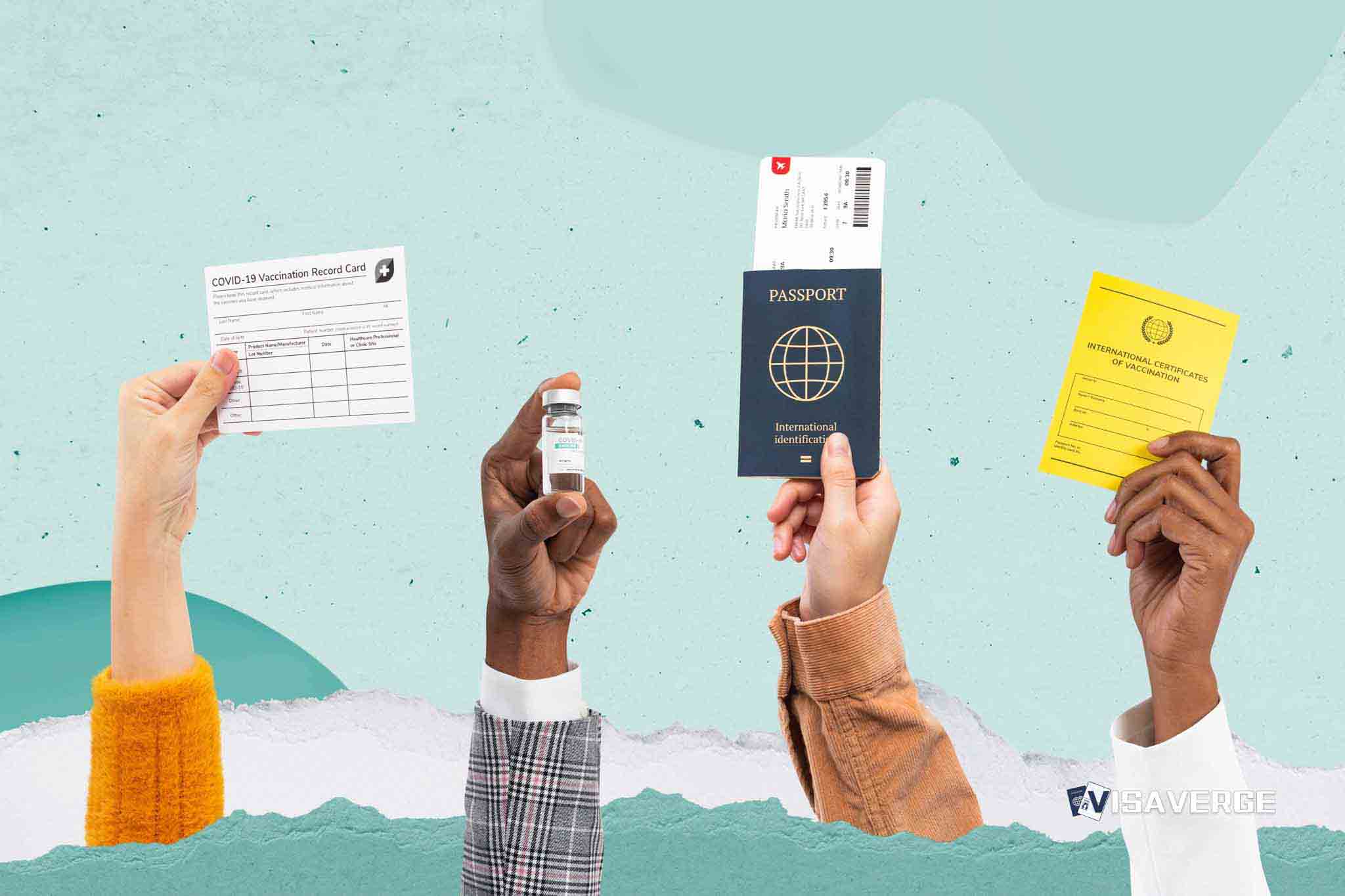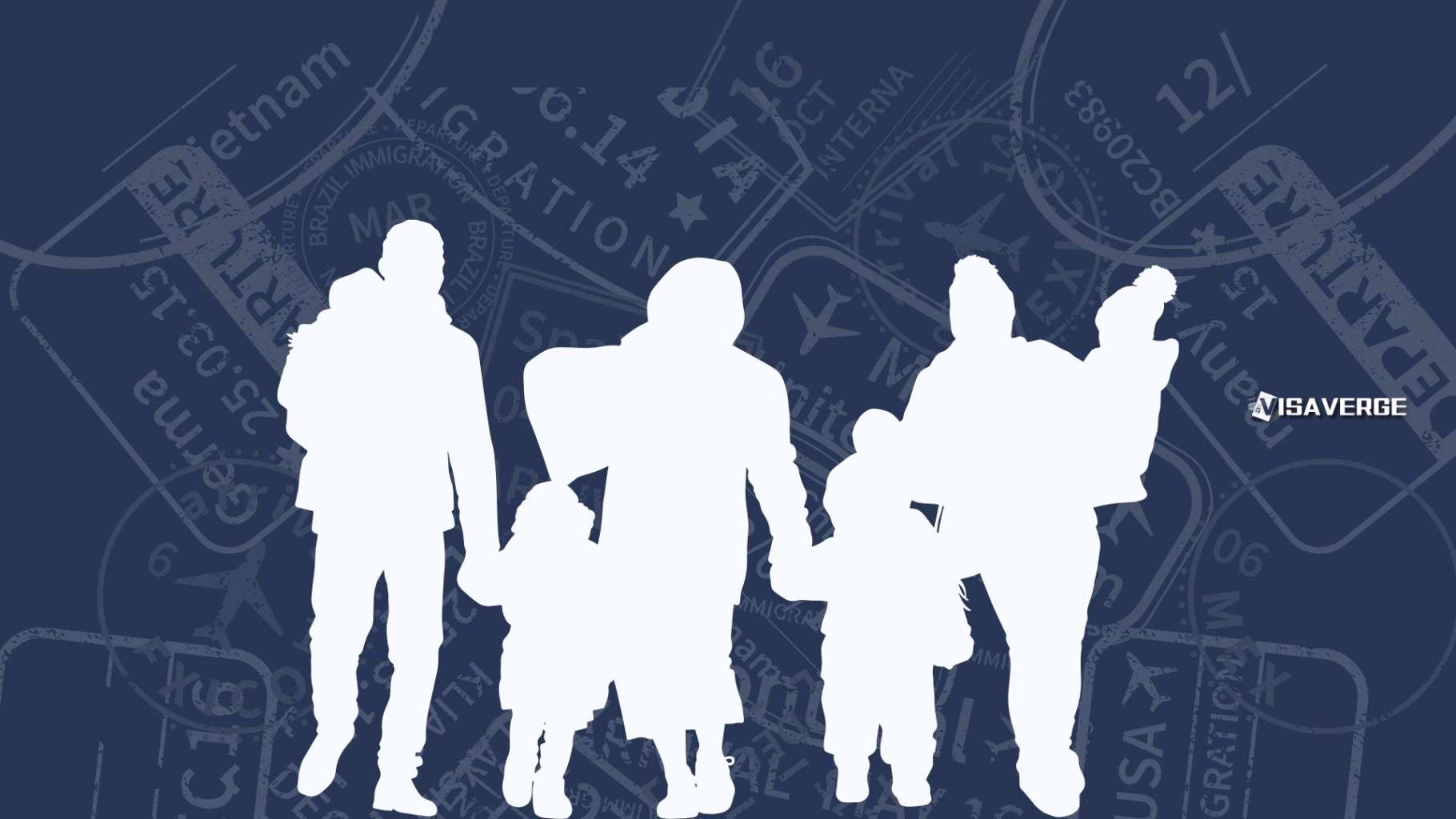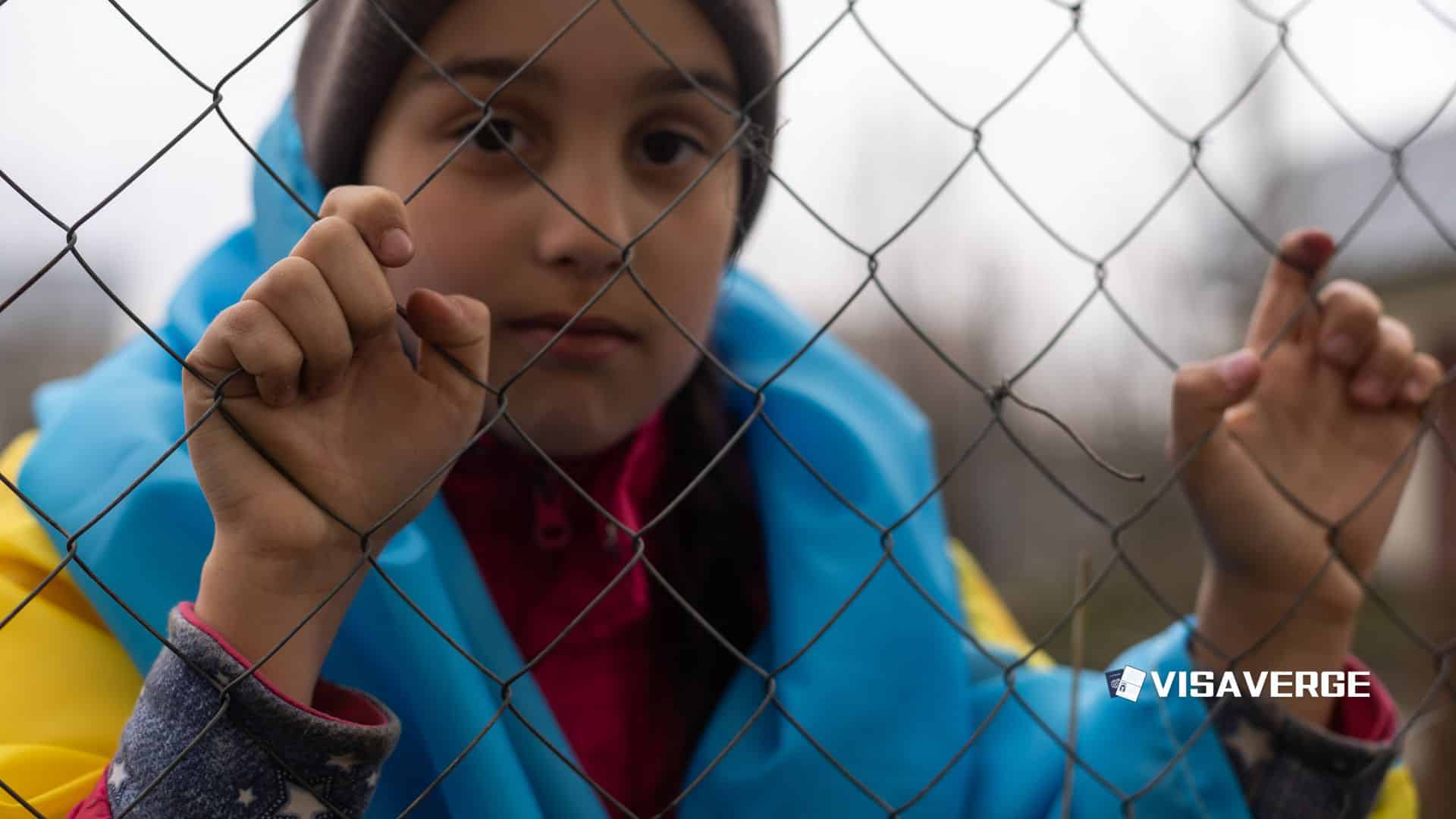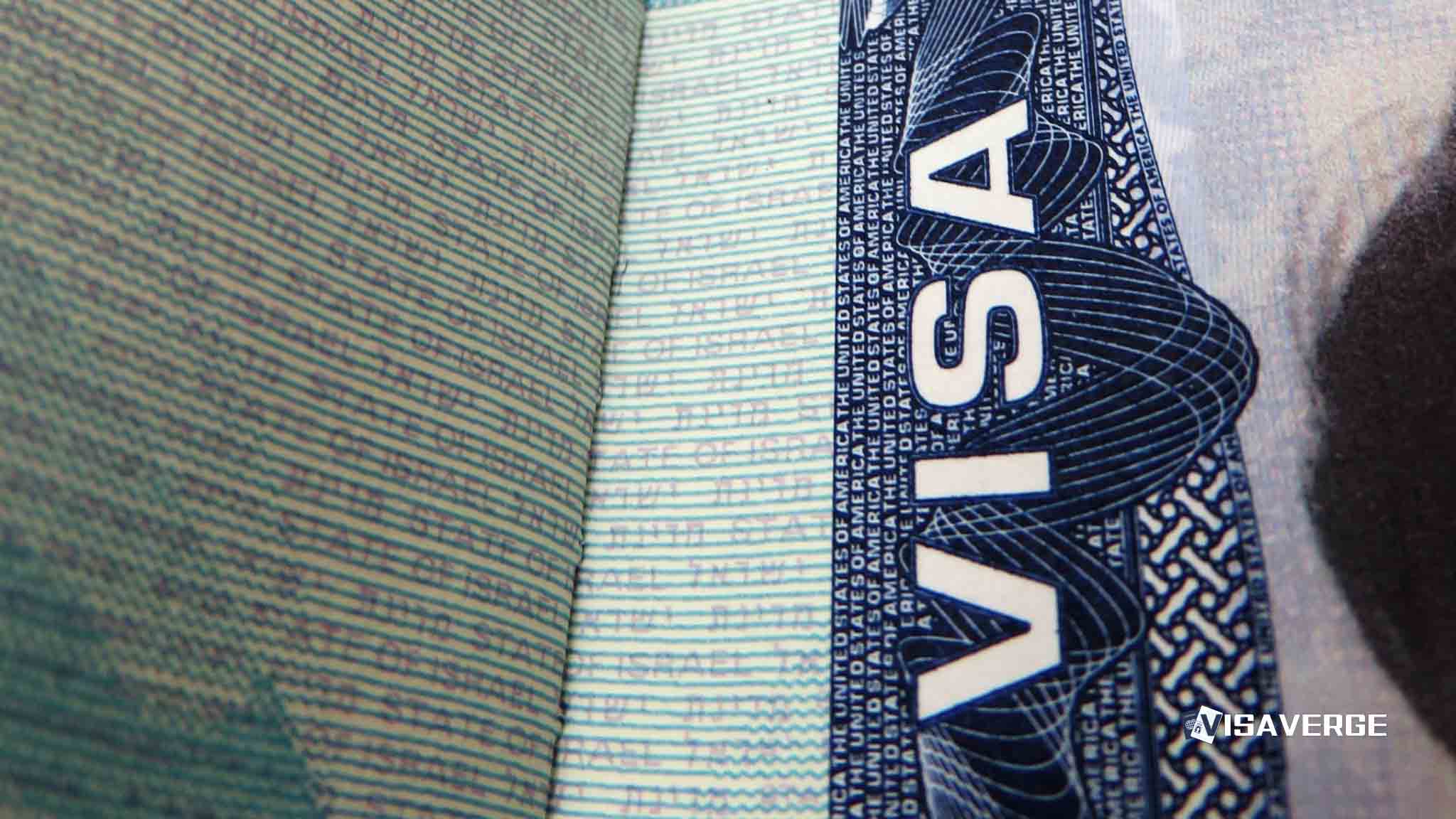Canada 🇨🇦 is canceling more visitor visas in 2025, and officials have spelled out why. Immigration, Refugees and Citizenship Canada (IRCC) says tighter rules and stronger checks put in place in 2024 and 2025 are now fully active. Under new federal regulations that took effect on January 31, 2025, officers can cancel temporary resident documents—including visitor visas, eTAs, work permits, and study permits—when certain problems come up.
Immigration Minister Marc Miller also noted that refusal rates have risen sharply, topping 61% for some countries, after border and security screening increased. According to analysis by VisaVerge.com, these steps have made honesty, complete records, and clear travel plans more important than ever for anyone seeking entry.

For official policy, application guidance, and updates, use the IRCC visitor page: https://www.canada.ca/en/immigration-refugees-citizenship/services/visit-canada.html
What this guide does
This ranked guide sets out the top 10 reasons for visitor visa cancellations and how to avoid them. The order reflects IRCC’s enforcement focus in 2025, frequency of issues seen in cases, and the level of risk each problem brings to an applicant.
The aim is practical: give you clear steps to lower your risk, using simple language and real-world tips you can follow.
Ranking Criteria and scope
This list covers:
– IRCC’s 2024–2025 policy updates and new powers to cancel documents
– Issues most likely to trigger cancellations at any stage (application, at the border, or after issuance)
– What officers look for, mistakes to avoid, and helpful documents
– Practical steps for each risk area, including proof of funds, travel plans, and past records
1) Misrepresentation and Fraud
Misrepresentation and fraud are the top reason for visitor visa cancellations. This includes false statements, fake documents, or hiding facts material to the decision. With new verification tools, officers cross-check bank records, employment claims, study history, past travel, and family ties.
What IRCC looks for:
– Gaps between your forms, letters, and bank statements
– Borrowed funds that appear and disappear
– Inconsistent job titles, salaries, or dates
Consequences:
– Penalty: up to a five-year ban from Canada
– Cancellation of any current visitor status
How to avoid it:
– Tell the truth on every page and in every upload
– Explain any unusual item (job change, big deposit, name spelling) in a short letter
– Keep copies of source documents in case an officer asks questions at the border
2) Criminal Record or Security Concerns
Cancellations occur when IRCC finds a serious criminal record, security issue, or medical inadmissibility. Even old convictions can matter if related to violence, fraud, or serious harm.
What IRCC looks for:
– National police certificates, fingerprints, and border records
– Open cases or undisclosed charges
Consequences:
– Immediate cancellation and likely refusal at entry
– Possible future bars unless rehabilitation applies
How to avoid it:
– Disclose all criminal history up front
– Provide court documents and proof of sentence completion
– Include any rehabilitation proof or record suspension where allowed
3) Previous Immigration Violations
Past overstays, unauthorized work/study, or false statements in prior cases raise red flags and are seen as pattern risk.
What IRCC looks for:
– Expired visas, removal orders, failed compliance in Canada or other countries
– Past refusals that were not disclosed
Consequences:
– Cancellation and possible bans in repeat or serious cases
How to avoid it:
– Provide a clear timeline of travel and status history
– Add evidence that your situation has changed (stable job, family ties at home)
– Explain what went wrong last time and what’s different now
4) Inconsistency with Purpose of Visit
If your actions don’t match your stated reason—tourist who brings job tools, business traveler who can’t explain meetings, or a long “vacation” without funds—the visa can be canceled. Not having a return ticket that fits your allowed stay also raises doubts.
What IRCC looks for:
– Purpose letters that don’t line up with bookings
– One-way tickets or open returns when a short visit was claimed
Consequences:
– Cancellation or refusal at the airport or land border
How to avoid it:
– Write a short, clear purpose letter (tourism, family visit, business meetings)
– Show a return ticket that fits your stated trip dates
– Bring proof of ties to your home country (job letter, property, school)
5) Inadequate Financial Support
IRCC cancels visas where funds look weak, borrowed, or staged. Officers want to see real, steady funds that can support your stay.
What IRCC looks for:
– Recent bank statements, tax slips, and pay stubs
– Sudden deposits with no clear source
Benchmarks:
– For short visits, applicants often show CAD 4,000–CAD 6,000 per person (typical; actual needs vary by trip)
How to avoid it:
– Show funds over several months, not just one snapshot
– Avoid borrowing money for the application
– Include a sponsor letter only if the sponsor’s funds and relationship are clear—and still show your own money if possible
6) Incomplete or Incorrect Documentation
IRCC introduced stricter digital submission rules in 2025. Missing pages, wrong formats, or outdated documents now lead to faster rejections and cancellations.
What IRCC looks for:
– Expired passports, unreadable scans, mismatched names
– Missing travel history pages
Consequences:
– Cancellation or refusal without further request
How to avoid it:
– Follow IRCC file size, format, and naming rules
– Check dates on every document; renew if close to expiry
– Upload full bank statements and full passport pages, not cropped images
7) Failure to Leave Canada on Time
If officers believe you won’t leave by the end of your allowed stay, they can cancel the visa or refuse entry. This is common when travel plans look open-ended or ties at home seem thin.
What IRCC looks for:
– No return ticket, loose itinerary, or no job/school to return to
– Many prior long stays in other countries without clear reasons
Consequences:
– Cancellation or refusal at the border
How to avoid it:
– Show proof of strong ties (employment letter with leave dates, enrollment letter)
– Keep your trip short and well-planned
– Present a firm return ticket that matches your stated dates
8) Lost, Stolen, or Destroyed Documents
If a visitor visa counterfoil or eTA details are lost or destroyed, IRCC can cancel the document. You’ll need to reapply or replace it.
What IRCC looks for:
– Reports of lost or stolen passports
– Evidence that document control is compromised
Consequences:
– Cancellation of the old document for security
How to avoid it:
– Store your passport securely and make digital backups of key pages
– If lost or stolen, report it right away and follow replacement steps
– Travel only with valid, readable documents
9) Administrative Errors
Sometimes a visa is issued in error (wrong category, wrong validity date). Once found, IRCC can cancel it.
What IRCC looks for:
– System mismatches or officer error in issuance
– Conflicting validity with your passport’s expiry
Consequences:
– Cancellation and need to reapply or correct the record
How to avoid it:
– Check your approval letter against your passport and travel dates
– Re-check that the visa details match your purpose before travel
– If you see a mistake, contact IRCC for correction as soon as possible
10) Deceased Visa Holders
Visitor visas are canceled if the holder has passed away. This protects system integrity and prevents misuse of documents.
What IRCC does:
– Cancels the document upon confirmation of death
Family steps:
– Notify IRCC and the airline if travel was booked
– Handle estate and travel insurance matters with the appropriate agencies
How to avoid issues:
– Keep contact info current so the right people can receive official notices
– Use secure document storage to prevent misuse
Policy context: why cancellations are rising in 2025
Two policy shifts matter most this year:
1. New Immigration and Refugee Protection Regulations effective January 31, 2025 let officers cancel temporary resident documents more quickly when a listed condition applies.
2. Canada’s 2025–2027 Immigration Levels Plan (released October 24, 2024) lowered both permanent and temporary admissions.
Lower targets plus closer checks raise the bar for visitors. Minister Marc Miller has said refusal rates have surged—above 61% for some countries—due to stronger border screening. Many applicants now face more questions at the airport and more proof requests during application.
Practical steps to reduce your risk
IRCC’s guidance and recent cases point to a simple path: tell the full truth, back it up with clear records, and show that your trip is short, funded, and tied to home.
Key actions:
– Prepare a complete file: upload all pages, use clear scans, and make sure dates match across documents.
– Prove funds that last: share recent bank statements and pay stubs—avoid sudden cash deposits.
– Explain your trip: write a short purpose letter and include bookings that fit your plan.
– Show ties to home: add job or school letters, family records, or property papers.
– Disclose past issues: list any prior refusals, overstays, or criminal records and include evidence of rehabilitation or good conduct.
– Book a return ticket: ensure it aligns with your planned length of stay.
– Use official channels: apply online through IRCC’s portal and follow digital rules precisely.
What officers want to see, in plain terms
- Honesty that matches your papers, history, and interview
- Steady funds appropriate for your travel dates and plans
- A clear reason to return home at trip end
- Clean, current documents with no gaps or missing pages
Common scenarios and recommended documents
- Short tourist visit, modest budget:
- Steady income/savings over several months
- Clear itinerary and return plans
- Family visit:
- Invitation with dates matching your bookings
- Your own funds to cover daily costs even if hosted
- Business travel:
- Meeting agendas, letters from the inviting company
- Proof you’ll return to your job at home
When a border officer questions your case
Even with a valid visa, a border officer can refuse entry or cancel your document if answers or documents raise concerns. Keep printed copies of:
– Purpose letter
– Return ticket
– Hotel bookings
– Bank statements
Answer simply and truthfully. If something changed since you applied (new job, date shift), explain it and show proof. Small changes are normal; hidden changes cause trouble.
How to weigh your risk before applying
Ask yourself:
– Does my story line up across forms, letters, and bank records?
– Can I show steady funds, not just a one-time deposit?
– Do I have CAD 4,000–CAD 6,000 per person for a short trip, plus tickets and lodging?
– Do I have clear ties at home (job, classes, family, property)?
– Have I disclosed any past refusals, overstays, or police issues with documentation?
– Does my return ticket match my allowed stay?
If you answered “no” to any, fix that point before applying. For complex cases, consider speaking with a licensed representative.
Why compliance helps beyond this trip
A clean visit with on-time departure makes later entries smoother. Fraud or non-compliance can block you for up to five years. Telling the truth—even about tough facts—often leads to better outcomes than hiding them.
Important: Rules and processes can change, and IRCC may add more digital tools to detect fraud and verify records. Always check the official IRCC page for visitor rules, processing notes, and any new steps that apply to your situation: https://www.canada.ca/en/immigration-refugees-citizenship/services/visit-canada.html
By focusing on honesty, steady funds, strong ties, and clean documents, you can lower your risk in a year when visitor visa cancellations are more common than before.
Frequently Asked Questions
This Article in a Nutshell
Canada strengthened border checks in 2024–2025 and empowered officers from January 31, 2025 to cancel temporary documents; honesty, steady funds, return tickets, and clear purpose now crucial to avoid refusals and up to five-year bans for fraud.













